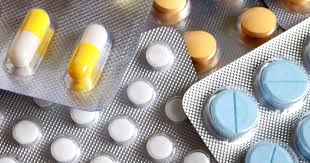
Breaking News
 How Would Ron Paul Audit The Fed?
How Would Ron Paul Audit The Fed?
 The Hidden Dangers of Antidepressants and Why They're So Hard To Stop Taking
The Hidden Dangers of Antidepressants and Why They're So Hard To Stop Taking
 The Gaza Ceasefire Is Being Sabotaged By Israel, By Trump, And By The Media
The Gaza Ceasefire Is Being Sabotaged By Israel, By Trump, And By The Media
 Victor Davis Hanson Provides a Helpful Lesson on Government and History for Democrats...
Victor Davis Hanson Provides a Helpful Lesson on Government and History for Democrats...
Top Tech News
 Flying Car vs. eVTOL: Which Is the Best New Kind of Aircraft?
Flying Car vs. eVTOL: Which Is the Best New Kind of Aircraft?
 NASA and General Atomics test nuclear fuel for future moon and Mars missions
NASA and General Atomics test nuclear fuel for future moon and Mars missions
 Iran Inaugurates First-Ever Drone Carrier Warship In Persian Gulf
Iran Inaugurates First-Ever Drone Carrier Warship In Persian Gulf
 Fix your dead Lithium RV battery - How to Reset LiFePO4 Battery BMS
Fix your dead Lithium RV battery - How to Reset LiFePO4 Battery BMS
 New fabric can heat up almost 50 degrees to keep people warm in ultracold weather
New fabric can heat up almost 50 degrees to keep people warm in ultracold weather
 Finally! A Battery That's Better Than Energizer and Duracell!
Finally! A Battery That's Better Than Energizer and Duracell!
 What's better, 120V or 240V? A Kohler generator experiment.
What's better, 120V or 240V? A Kohler generator experiment.
 MIT names 10 breakthrough technologies to watch in 2025
MIT names 10 breakthrough technologies to watch in 2025
 Watch China's 4-legged 'Black Panther 2.0' robot run as fast as Usain Bolt
Watch China's 4-legged 'Black Panther 2.0' robot run as fast as Usain Bolt
 Scientists Just Achieved a Major Milestone in Creating Synthetic Life
Scientists Just Achieved a Major Milestone in Creating Synthetic Life
The Hidden Dangers of Antidepressants and Why They're So Hard To Stop Taking

Note: statins (discussed here), NSAIDS like ibuprofen (discussed here), and PPI acid reflux medications (discussed here) frequently make the top five as well.
This is because SSRIs rarely benefit patients (only a minority of depressed patients have a metabolic type that responds to SSRIs) and the drugs have a large number of severe and often life-changing side effects. For example, in a survey of 1,829 patients on antidepressants in New Zealand:
• 62% reported sexual difficulties
• 60% felt emotionally numb
• 52% felt not like themselves
• 39% cared less about others
• 47% had experienced agitation
• 39% had experienced suicidal ideation.
Many of these can be immensely impactful for individuals (e.g., SSRI sexual dysfunction is often permanent and frequently causes severe depression, while emotional anesthesia takes away the joy of life and can cause people to spend years, if not decades, in emotionally toxic situations).



